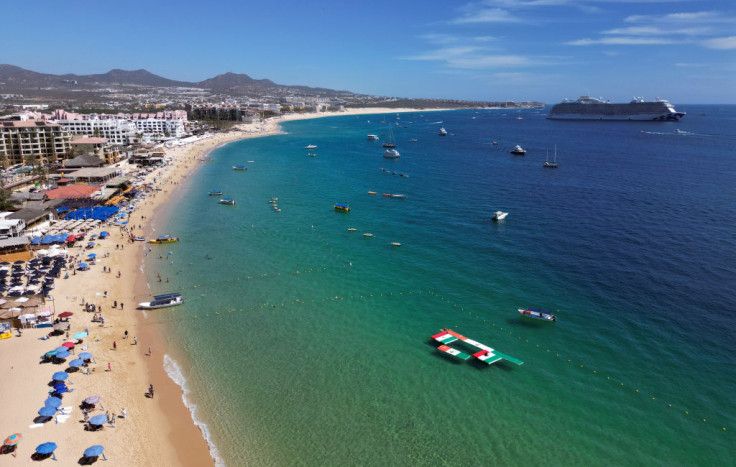
Mexican media reported the appearance of two 'narco-banners' warning Americans to stop visiting or residing in the tourist area of Los Cabos, Baja California Sur.
The banners specifically mentioned FBI Director Kash Patel, DEA Administrator Terry Cole, and U.S. Ambassador to Mexico Ronald Johnson, and criticized the Trump administration's recent anti-drug trafficking actions in Mexico. They warned that they would be "the ones to blame" if anything happened to U.S. residents in the area.
Known in Mexico as "narcomantas," these banners are typically used by drug cartels to expose betrayals, distance themselves from crimes, or send messages to rival groups and the public. Reports of the Los Cabos banners raised concern in the U.S., with a former White House official describing the threat as consistent with decades of cartel "narco-terrorism," comparable to historical mafia tactics.
"When you're dealing with a cartel that is serious and sophisticated, right at our back door, we have to take it seriously," Joe Peters, who served in the White House drug czar's office under Bill Clinton and George W. Bush, told Fox News Digital. "It's a warning to both governments. They rule through threats and intimidation, the same way the mafia did."
Mexican officials, including President Claudia Sheinbaum and Omar García Harfuch, the country's top security official, were also named on the banners.
According to Border Report, the banners read: "You will be the ones to blame. We'll show how we'll make this war starting Oct. 5 on all Americans residing in areas where we have a presence... especially those living in San José del Cabo and Cabo San Lucas."
They continued: "We are the ones who rule here, and we'll demonstrate what we are capable of if you don't stop arresting our people and seizing our products and weapons."
Although allegedly signed by the Sinaloa Cartel faction of Los Chapitos, state authorities repeatedly reported finding no trace of the banners. Mexico's attorney general in Baja California Sur added that between April and July, 46 similar banners appeared statewide, many deemed "false and unsubstantiated" and intended to intimidate residents, according to Border Report.
Peters noted that cartels use narco-banners to instill fear and maintain control over communities.
"Their strategy is simple: if they can control the levers of power in a nation through intimidation, then they control the nation," he said. "They assassinate police, judges, and journalists, using fear to rule much like authoritarian regimes."
For Peters, the proximity of Los Cabos, about 800 miles south of Tijuana and the U.S.-Mexico border, makes Americans particularly vulnerable to extortion, kidnapping, and other attacks. He advised people to be careful
"Don't go unless you really need to. Stick to areas with an established record of safety," Peters said.
October has been a particularly turbulent month for the Baja California peninsula. Ongoing power struggles between Sinaloa Cartel factions and other regional criminal groups continue to fuel violence, including attacks on law enforcement.
Earlier this month in Tijuana, state authorities confirmed that a drug cartel was behind a drone attack on a police station. According to reports, three drones carrying explosives packed with nails and metal fragments struck the facility, damaging several police vehicles parked outside.
In a separate incident about 70 miles south in Ensenada, offices of the state's anti-car-theft and anti-kidnapping units were vandalized, and several police vehicles were set on fire.
The recent attacks have raised concern across the border. Following the drone strike in Tijuana, the U.S. Consulate in the city urged American citizens to avoid the area and keep friends and relatives informed of their whereabouts.
© 2025 Latin Times. All rights reserved. Do not reproduce without permission.






